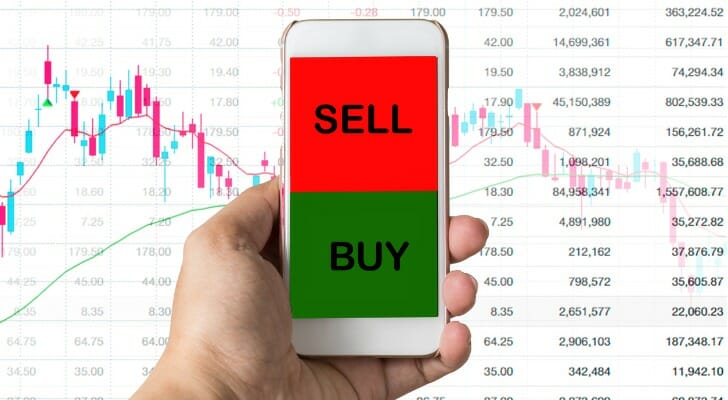Webull and Robinhood are two popular online stock trading platforms that allow users to invest and trade largely commission-free. Webull caters to both desktop and app-based users, aiming more toward the sophisticated investor rather than the beginner. In contrast, Robinhood has built more of a gamification market that emphasizes an app-based approach and ease of use for new investors. However, Robinhood’s appeal to inexperienced investors is a marked contrast to its emphasis on options trading, creating problems for some users. When comparing Webull vs. Robinhood, this is what to consider.
If you want a hands-on approach to investing, a financial advisor can help you create a financial plan that accounts for your investing needs and goals.
Overview of Webull vs. Robinhood
Webull is a commission-free brokerage service that features an extremely easy-to-use mobile app. It is packed with relevant information about all types of investments and markets, including initial public offerings (IPOs), dividends, FOREX and popular exchange-traded funds (ETFs) and industries.
Robinhood keeps day trading as simple as possible. There is no account minimum required to begin investing, and you can trade stocks, ETFs, options and cryptocurrencies with no commissions or trading fees. Meanwhile, the mobile app’s interface is streamlined and easy to use with a design that keeps new investors in mind.
Webull vs. Robinhood: Fees
When comparing the fees for Webull vs. Robinhood, there are some similarities.
Both of these platforms advertise themselves as being largely free of fees and commissions. This is mostly true, as each features a business model based around other uses for their clients’ money.
Both rely to a large extent on what is known as the bid-ask spread, the difference between a stock’s buy price and its sale price. By routing their orders through third-party market makers and other investors, both of these platforms capitalize on this spread to generate a small profit on each trade (typically amounting to $0.01 or less per share traded). With enough trading volume, this system of arbitrage can more than compensate for the lack of commissions.
Users face four main types of fees:
- Trading fees: These are fees attached to each trade you make. This can (but rarely) come in the form of a flat fee, but more often, the broker will charge you what is known as the spread. This is the difference, if any, between the buying and the selling price of an asset.
- Trading commissions: This is a fee your broker charges that is a percentage of the volume or value of each trade.
- Inactivity fees: These are fees the broker charges you for not trading.
- Non-trading and other fees: These include any trading fees not covered above. For example, a brokerage may charge you for making deposits into your brokerage account or taking withdrawals.
Neither Webull nor Robinhood charges you trading fees or commissions on a per-trade basis. Neither charges an inactivity fee, although both charge a few fees for money movement. Both accept deposits and withdrawals primarily by bank transfer for no fee.
Margin trading is available on both platforms, but the fee structures differ. Webull offers margin trading at interest rates of 8.74% for Standard members and a sliding scale from 4.65% to 5.95%, depending on your balance. Robinhood offers margin trading with rates ranging from 4.7% to 5.75%, with Gold subscribers receiving the first $1,000 of margin investing included with their subscription. The fee to upgrade to a Gold membership is $5 per month or $50 annually.
Webull vs. Robinhood: Services and Features

Both platforms offer almost identical trading opportunities. Webull and Robinhood both allow you to trade U.S. stocks, ETFs, options and ADRs (a form of global security that provides American access to foreign securities.) Neither platform allows you to trade in mutual funds or bonds.
One difference between the two is that Robinhood does not support short sales of stock, while Webull does.
However, the biggest difference between Webull vs. Robinhood is their features. In fact, in many ways, the trading experience on these two platforms could not be more different.
Robinhood was the first mobile platform to offer commission-free trading, and its brand has always showcased Robinhood’s easy trading for novice investors, especially given its interface. The trading screen for Robinhood is sparse yet effective, offering key information, such as current price, recent changes and price history going back up to five years. Investors can set sophisticated orders like stop-loss and limit orders via a drop-down menu, with pertinent details readily available, such as trading volume. It is easy to use and easy to understand at a glance.
However, the platform has also faced some criticism for many of its design decisions, such as the Netflix-like panel at the bottom of each stock, recommending other equities that “you may also like.” The idea of treating securities like entertainment content has raised concerns that the platform encourages risk-taking behavior among inexperienced users.
In comparison, Webull’s platform is clearly designed with a more sophisticated investor in mind. Far from Robinhood’s clean trading space, Webull’s interface looks as if it were designed for professionals. Current pricing information and activity are displayed, along with the user’s position in the asset. Price history is charted on a scale from one minute to five years, making this potentially more useful for day trading. The system uses a candlestick chart, which provides far more technical data on its basic trading pages than Robinhood does. However, this comes at the risk of confusing and potentially alienating new investors.
This depth of information is the hallmark difference between the two services. While Robinhood offers little more information than basic history, Webull’s trading deck provides several dozen trading indicators. This makes their product more complex but also more sophisticated for investors who know how to use this information.
Clients of both Robinhood and Webull are able to invest in crypto. A number of cryptocurrencies are available, including Bitcoin, Ethereum, Dogecoin and Litecoin. Webull used to offer crypto trading but now offers those services via Webull Pay, a separate business.
Lastly, a niche but highly valuable feature offered by Webull is known as paper trading. This allows you to simulate trades to see the potential cost and future performance of a position without actually committing any real money. This is an incredibly useful feature for new investors that is available on Webull but not Robinhood.
Webull vs. Robinhood: Online and Mobile Experience
Another similarity between Webull vs. Robinhood is their customer service. Robinhood offers both phone and online customer support Webull also offers both online and phone support.
Both products are known for their well-designed user experience. Robinhood offers a highly streamlined experience. It is built for ease of use and while this comes at the expense of more sophisticated trading tools, it makes using the platform a breeze.
Webull, similarly, is very well built for trading. This is a sophisticated investment platform that is not unnecessarily complex. Information is well-organized and easy to find. While it can be overwhelming to a new investor, Webull’s experience is highly efficient for the experienced investor.
Who Should Use Webull?
Webull is an outstanding tool for most investors, especially for those who value a degree of sophistication. The range of tools available through its interface may intimidate newcomers, but basic pricing information is clearly presented, and its range of technical data is impressive.
Who Should Use Robinhood?
Robinhood is designed more for novice investors with an interface that is clean and efficient. It simplifies trading without overwhelming an inexperienced trader, even with more complicated assets like options contracts.
However, this strength is also its weakness. Robinhood is as much targeted at novice investors as it is designed for them. It offers few guardrails for high-risk assets, such as options contracts, which can be dangerous for inexperienced investors.
Robinhood’s ease of use, limited information and low-friction trading make it an outstanding platform for advanced investors seeking a straightforward interface. If you are confident in your investing prowess, Robinhood can be a pocket-sized quick-trading desk. However, if you are new to trading, this platform can arguably oversimplify trading.
Tax Considerations
It is important to remember that even though Webull and Robinhood make trading accessible, your gains and losses still come with tax implications, and neither platform automatically shields you from taxes.
Each platform will provide you with a Form 1099 at the end of the tax year if you had taxable activity in your account, such as selling investments at a profit, earning dividends or receiving interest. This form details your capital gains, losses and income, which you will need to report on your tax return. These platforms also allow you to download your transaction history, which helps when using tax software or working with a professional to prepare your return.
One feature that neither Webull nor Robinhood currently offers is automated tax-loss harvesting. This is a strategy where you sell investments at a loss to offset gains elsewhere in your portfolio, thereby lowering your taxable income. While some robo-advisors and full-service brokerages offer tools to automate this process, these platforms leave it up to you to identify and execute these trades manually.
If you are an active trader on either platform, it is a good idea to keep track of your transactions throughout the year and consult with a tax advisor to optimize your tax strategy. Planning ahead can help you avoid surprises come tax season and help ensure you make the most of your available deductions and credits.
Bottom Line

Webull may be the better choice for most investors seeking an online trading platform, while sophisticated investors are unlikely to find any significant benefit in Robinhood’s simplified approach. However, both platforms make trading easy and quick, whether you are trading from a desktop or smartphone.
Ask a financial advisor for help deciding whether to invest with Webull vs. Robinhood based on your financial objectives and time horizon.
Investing Tips
- If you have questions about investing, a financial advisor can help you create a portfolio to help you reach your goals. Finding a financial advisor doesn’t have to be hard. SmartAsset’s free tool matches you with up to three vetted financial advisors who serve your area, and you can have a free introductory call with your advisor matches to decide which one you feel is right for you. If you’re ready to find an advisor who can help you achieve your financial goals, get started now.
- Whether you choose Webull or Robinhood, and whether you work with a financial advisor or not, a free and easy-to-use investment calculator can be an indispensable tool as you pursue your financial goals.
Photo credit: ©iStock.com/vgajic, ©iStock.com/metamorworks, ©iStock.com/NJPhotos
